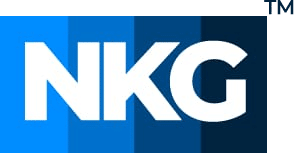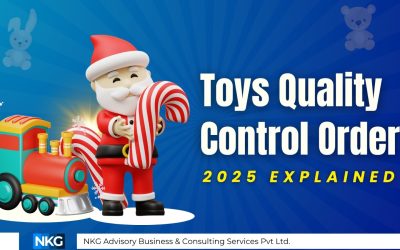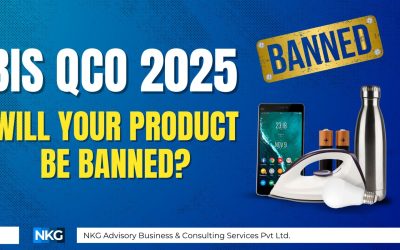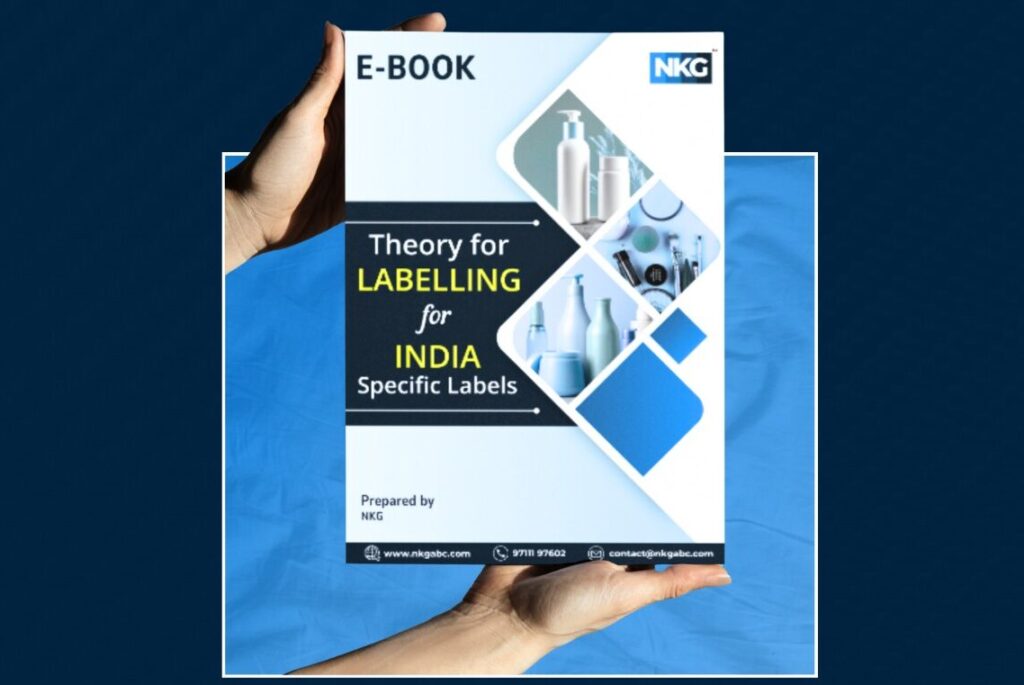Introduction
- Following regulatory compliance is essential for any organization as it ensures that the business is operating within the boundaries of the law and promoting fair competition in the marketplace. This makes the business more attractive to customers, who trust them with their health and money.
- Different regulatory authorities work tirelessly around the world to ensure that businesses comply with regulations that vary from country to country.
- Regulatory compliance requirements apply to businesses of all sizes, whether they are large, medium, or minor enterprises.
What are the regulations
- Regulatory compliance refers to the process of ensuring that a company is adhering to all relevant laws and regulations governing its industry. Regulations can be termed as rules set by authoritative bodies to maintain the quality and safety of the products being marketed.
- In India, different regulatory bodies take care of the regulations applicable to various products to ensure their safety and efficacy. These bodies include the Food Safety and Standards Authority of India (FSSAI), the Central Drugs Standard Control Organization (CDSCO), and the Bureau of Indian Standards (BIS), among others.
- Certain products, such as medical devices, foods, and cosmetics, need strict regulations to enter the market as they directly affect the consumer and the operators (if any). Hence, user safety regulations are required to ensure that these products are safe and effective for their intended use.
- The primary aim of regulations is to improve transparency, traceability, and consumer safety. By adhering to regulatory compliance, companies can build trust among their customers, which can lead to increased sales and market share.
Regulatory Body: FSSAI
Full Form: Food Safety and Standards Authority of India
Deparment Responsbility: Their main aim is to monitor the quality of food produced, processed, marketed, distributed, and sold.
Regulatory Body: ICC
Full Form: Indian Chemical Council
Deparment Responsbility: Its main objective is to help the chemical market to grow in the Indian market.
Regulatory Body: AERB
Full Form: Atomic Energy Regulatory Body
Deparment Responsbility: Their primary focus is to maintain the effective use of ionization and nuclear energy and prevent India from any undue risks.
Regulatory Body: CDSCO
Full Form: The Central Drugs Standard Control Organization
Deparment Responsbility: They control the import and approval of new drugs and devices.
Regulatory Body: BIS
Full Form: Bureau of Indian Standard
Deparment Responsbility: Its primary responsibility is to develop standardization, marking, and quality activities.
Regulatory Body: NCB
Full Form: Narcotics Control Bureau
Deparment Responsbility: NCB works as a nodal agency to enforce drug laws in India.
Regulatory Body: LMD
Full Form: Legal metrology department
Deparment Responsbility: The main objective of the Metrology department is to ensure the accuracy of weights and measuring instruments used for commercial purposes.
Regulatory Body: TRAI
Full Form: Telecom Regulatory Authority of India
Deparment Responsbility: This body regulates the telecommunication sector of India. Along with telecommunications, it handles broadcasting and cable services.
Regulatory Body: CCI
Full Form: Competition Commission of India
Deparment Responsbility: This body aims to promote healthy trade competition in India.
Regulatory Body: NMC
Full Form: National Medical Commission
Deparment Responsbility: It regulates medical education as well as the professionals in India.
Regulatory Body: ASCI
Full Form: Advertising Standards Council of India
Deparment Responsbility: This body ensures that advertisements stick to their code and regulations so that ads do not pass false or harmful information.
Different rules apply to products are:
- Medical Device Rule, 2017 for medical device
- Drug and cosmetics rule 1945, for drugs and cosmetics.
- Food Act 2006.
- New Cosmetics Rules 2020
- Legal metrology Rules and Regulations etc.
Why regulations are essential for business-
- Regulatory compliance is necessary for any business as it ensures that the organization is following all relevant laws and regulations, protecting consumers, working professionals, and employers. Legal compliance and regulatory compliance are both critical for businesses to maintain their reputation and avoid legal and financial penalties.
- When a business follows regulatory compliance, it shows that the organization is reliable, ethical, and integral. Regulatory compliance management is the process of monitoring and ensuring that an organization is following all relevant regulations and standards.
- Compliance can be a synonym for quality, as regulations ensure that the products being launched by the industry are safe for public use and meet the necessary quality standards. Regulatory compliance and risk management go hand in hand to ensure that the risks associated with non-compliance are minimized.
- It is crucial to keep regulations in mind at every stage of a product’s lifecycle, from planning to development to marketing, to post-market surveillance (if any). Regulatory compliance requirements vary depending on the industry and product, and it is essential for businesses to understand and comply with these regulations.
- Regulations standardize businesses, ensuring that all organizations follow the same guidelines to maintain public safety and consumer trust. By following regulatory compliance, businesses can quickly build trust with their customers and stakeholders.
- A business that complies with regulations is more trusted by stakeholders, which can lead to increased investments and growth opportunities. Regulatory compliance certification is a way for businesses to demonstrate their commitment to compliance and build trust with their stakeholders.
- Although changing regulations can be challenging for businesses, they often benefit the company more than harm by promoting fair competition, improving transparency and traceability, and protecting consumers’ interests.
Pros and Cons of Regulations:
Regulatory compliance is essential to ensure that businesses are following the necessary rules and regulations set by authoritative bodies. Here are some of the pros and cons of regulatory compliance:
Pros
- Regulatory compliance ensures the quality and safety of products being marketed, which in turn protects consumers, working professionals, and employers. It helps to build trust and reliability in the business.
- Compliance with regulations helps to standardize the business processes, which leads to increased efficiency, productivity, and profitability.
- Regulatory compliance is necessary for businesses to stay competitive in the market, as it is an indicator of good governance and ethical practices. It also helps to attract more investors, who are more likely to trust a business that complies with regulations.
- Regular audits and inspections by regulatory bodies can help to identify and rectify potential issues before they become major problems, thereby saving the business from potential legal and financial liabilities.
Cons
- Harsh regulations may lead to a failure to address real issues, as regulatory bodies may struggle to keep up with the latest technology and industry practices.
- Excessive interference from regulatory bodies may hinder business efficiency and disrupt the smooth functioning of the business.
- Multiple regulatory bodies with different mandates can lead to confusion and increased workload for businesses, as they struggle to keep up with the continuous changes in regulations.
- Compliance with regulations can sometimes be costly, especially for small businesses that may not have the resources to comply with all regulations, which can put them at a disadvantage in the market.
How non-compliance to regulations will affect the business
- Manufacturers and importers may have to make significant adjustments to comply with regulatory frameworks in different countries. Companies selling products in multiple countries may face challenges.
- Business owners can proactively adopt new regulations to avoid delays in marketing their products

- Financial burden: Non-compliance can lead to penalties, legal action, and notices from government bodies, creating a financial burden on the business. It can also result in a loss of investments, funding, and good employees. For instance, in 2016, a medical device company had to pay a fine of $646 million for bribing hospitals and doctors to use only their equipment.
- Delay in marketing: Half-complied or non-complied products cannot be sold in the market, resulting in delays in marketing.
- Damage to brand image: Non-compliance can damage a company’s reputation and lead to a loss of business and opportunities.
- Reducing risks: Regulatory-compliant businesses are expected to reduce or mitigate risks in their products, increasing trust among consumers and stakeholders and providing opportunities for expansion and revenue growth.
- Audit clearance: Non-compliance can lead to multiple audits, increasing workers’ workload, delaying work, and increasing costs.
- Safer products: Regulatory-compliant products are considered safer by the market, leading to greater consumer trust and willingness to pay a premium for them.
- Market withdrawals: Non-compliance can lead to product withdrawals from the market, causing financial losses and damaging brand image.
- Loss of license: Non-compliance can result in the revocation of business licenses, as seen in the example of a Canadian company that lost its license due to concerns about its manufacturing process.
- Company shutdown: When a company consistently shows non-compliance, the government may force it to shut down.
- Legal action: Non-compliance can result in penalties, legal action, and even imprisonment.
Conclusions
- Compliance with rules and regulations is crucial for the success and sustainability of any business. Failure to comply with regulations can lead to serious consequences, including financial burden, delays in product marketing, damage to brand image, and legal actions.
- Regulations not only ensure product safety but also help businesses navigate international markets. By complying with regulations, businesses can win the trust of consumers and stakeholders, expand their operations, and increase their revenue.
- It is essential for businesses to be proactive in complying with regulations, starting from the planning phase and continuing through product marketing and beyond, particularly in the case of products such as medical devices and drugs. Ultimately, following regulations can help businesses avoid significant financial losses, reputational damage, and legal troubles, while also promoting their long-term success.







